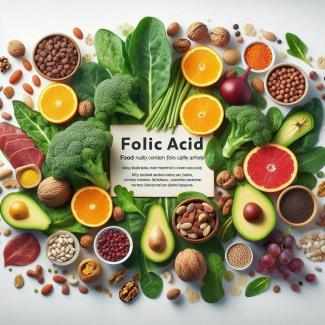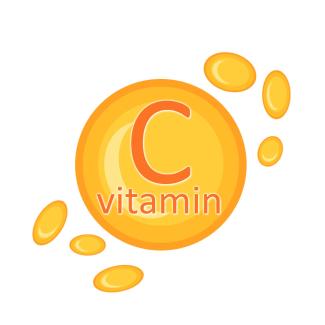
Folic acid, also known as vitamin B9, plays a vital role in numerous bodily functions, ranging from DNA synthesis to cell growth and division. It is one of the essential vitamins our bodies need to function properly, particularly in women of childbearing age, where it supports proper fetal development and helps prevent certain birth defects. Yet, beyond its connection to pregnancy, folic acid impacts various aspects of human health, from mental function to cardiovascular wellness.
This guide aims to provide a comprehensive understanding of folic acid, discussing its benefits, sources, and potential effects of deficiency. We'll explore how folic acid works, what it does for the body, and why maintaining optimal levels is crucial. You'll also learn about the signs and symptoms of folic acid deficiency, how to test for it, and when it’s time to see a doctor. Throughout the article, we’ll reference various scientific studies and research to provide a deeper and evidence-based understanding of folic acid and its essential role in human health.
What are Folic Acids and Which Foods Do We Get Them From?
Folic acid is the synthetic form of folate, a water-soluble B-vitamin (B9) naturally found in a variety of foods. The term "folic acid" is often used interchangeably with "folate," but there is a key distinction: folate is the form that occurs naturally in foods, while folic acid is the form used in supplements and fortified foods. Both are critical for numerous physiological functions, though the body absorbs folic acid more easily than naturally occurring folate.
Common Food Sources of Folate:
- Leafy Greens: Spinach, kale, and other dark leafy vegetables are some of the richest sources of folate. A cup of raw spinach contains about 58 mcg of folate.
- Legumes: Beans, peas, and lentils are also high in folate. For example, a cup of cooked lentils provides approximately 358 mcg.
- Citrus Fruits: Oranges, lemons, and other citrus fruits are excellent sources of folate. One large orange contains about 55 mcg.
- Avocados: A single avocado provides about 90 mcg of folate.
- Fortified Foods: Many cereals, breads, and pastas are fortified with folic acid to help prevent deficiencies. These foods can provide up to 400 mcg of folic acid per serving.
Other notable sources include asparagus, Brussels sprouts, broccoli, and eggs. Including a diverse array of these foods in your diet ensures an adequate intake of folate, which supports a variety of biological processes.
Everything You Need to Know About the Effects of Folic Acid
Folic acid plays a crucial role in numerous biochemical reactions. As a cofactor in the synthesis of DNA, it is indispensable for cellular function, tissue growth, and regeneration. It is especially important for periods of rapid growth, such as during pregnancy, infancy, and adolescence. Below are the key physiological effects and benefits of folic acid:
1. DNA Synthesis and Repair
Folic acid is vital for the production and repair of DNA, making it essential for the formation of new cells. Without sufficient folic acid, DNA synthesis is impaired, which can lead to various health issues, including an increased risk of cancer. According to research published in the Journal of Nutritional Biochemistry (2013), folate deficiency can disrupt DNA repair mechanisms and contribute to genetic mutations.
2. Support for Pregnancy and Fetal Development
One of the most well-known benefits of folic acid is its role in preventing neural tube defects (NTDs) in unborn babies. NTDs, such as spina bifida and anencephaly, can lead to severe disability or even death. The Centers for Disease Control and Prevention (CDC) recommends that all women of reproductive age take 400 mcg of folic acid daily, as many NTDs occur in the first few weeks of pregnancy, often before a woman knows she is pregnant.
A meta-analysis published in The Lancet (2011) found that folic acid supplementation during pregnancy reduces the risk of NTDs by up to 70%. This underscores the importance of adequate folic acid intake, especially for women planning to conceive.
3. Cardiovascular Health
Folic acid plays an important role in reducing homocysteine levels in the blood. Homocysteine is an amino acid that, when elevated, is associated with an increased risk of heart disease and stroke. A systematic review published in JAMA (2018) concluded that folic acid supplementation significantly reduces homocysteine levels, thereby potentially lowering the risk of cardiovascular events.
4. Mental Health
Folic acid also has a positive effect on mental health. Studies have shown that low levels of folate are linked to an increased risk of depression and cognitive decline. In a study published in Psychopharmacology (2016), patients with major depressive disorder who received folic acid supplementation exhibited significant improvements in their symptoms compared to those who did not receive supplementation.
5. Cancer Prevention
The role of folic acid in cancer prevention is complex. On the one hand, folate deficiency is associated with an increased risk of several cancers, including colorectal cancer, as it impairs DNA repair. On the other hand, some studies have suggested that excessive folic acid supplementation could potentially promote the growth of pre-existing cancer cells. Research published in Cancer Epidemiology, Biomarkers & Prevention (2019) highlights the need for more targeted studies to better understand the relationship between folate and cancer.
Discover the Secrets of Folic Acid
The benefits of folic acid extend far beyond preventing birth defects. Here are some lesser-known secrets about this vital nutrient:
1. Folic Acid and Aging
Folic acid may play a role in slowing down the aging process. Folate is crucial for maintaining the health of telomeres—the protective caps at the ends of chromosomes. As we age, telomeres naturally shorten, but sufficient folate can help preserve their length, which is associated with longevity and reduced risk of age-related diseases. A study published in The Journal of Gerontology (2020) found that higher folate intake was linked to slower telomere shortening in adults.
2. Folic Acid and Skin Health
Folic acid is sometimes referred to as a beauty vitamin due to its role in promoting healthy skin. Folate supports cell turnover and regeneration, which helps maintain skin elasticity and reduce the appearance of fine lines and wrinkles. Some skincare products even include folic acid in their formulations for its potential anti-aging benefits.
3. Folic Acid and Brain Function
Beyond preventing cognitive decline, folic acid has been shown to support overall brain function. A study published in Neurology (2017) found that folate supplementation improved memory and attention in older adults. This suggests that folic acid could play a role in preventing or slowing the progression of neurodegenerative diseases, such as Alzheimer's.
How Does Folic Acid Work?
Folic acid works by helping the body produce and maintain new cells, which is particularly important for periods of rapid growth such as pregnancy and infancy. It is also necessary for making DNA and RNA, the building blocks of cells, and for the metabolism of certain amino acids.
Folic acid is converted in the body to its active form, 5-methyltetrahydrofolate (5-MTHF), which participates in the remethylation of homocysteine to methionine. This process is crucial for maintaining low homocysteine levels, supporting cardiovascular health, and promoting proper gene expression.
In short, folic acid works as a critical coenzyme in numerous metabolic processes, ensuring the proper functioning of every cell in the body.
How Does Folic Acid Affect Health?
Folic acid impacts health in various ways, primarily by supporting cell division and DNA synthesis. Here are some of the most important ways it affects health:
1. Preventing Birth Defects
Folic acid's role in preventing neural tube defects during pregnancy is well-documented. Adequate folate levels are critical for the proper closure of the neural tube, which occurs in the first 28 days of pregnancy.
2. Reducing the Risk of Cardiovascular Disease
By lowering homocysteine levels, folic acid reduces the risk of cardiovascular diseases, including heart attack and stroke.
3. Supporting Cognitive Health
Folic acid deficiency has been linked to cognitive decline, dementia, and depression. Adequate folic acid intake supports mental clarity and overall brain function.
4. Promoting Healthy Red Blood Cells
Folic acid is essential for the production of red blood cells. A deficiency in folic acid can lead to megaloblastic anemia, where red blood cells are abnormally large and underdeveloped, causing fatigue, weakness, and shortness of breath.
Effective Methods of Folic Acid Utilization
To get the most out of folic acid, it is essential to focus on both dietary intake and, when necessary, supplementation. Here are some effective methods for ensuring optimal folic acid levels:
1. Fortified Foods
Many countries mandate the fortification of certain foods, such as cereals and bread, with folic acid. This has been highly effective in reducing the incidence of folic acid deficiency and neural tube defects.
2. Supplements
For individuals who may not get enough folic acid through their diet—such as pregnant women, individuals with malabsorption disorders, or those with a poor diet—supplements are an effective way to ensure adequate intake. Multivitamins and prenatal vitamins typically contain folic acid.
3. Dietary Diversity
Incorporating a wide range of folate-rich foods in your diet is one of the most natural and effective ways to ensure adequate folate levels. Foods like spinach, lentils, and citrus fruits are excellent sources of folate.
Why is it Important to Have Enough Folic Acid?
Having enough folic acid is important for overall health, but it becomes particularly crucial during pregnancy and periods of rapid growth. Here's why:
- For Pregnancy: Sufficient folic acid intake before and during early pregnancy can prevent serious birth defects, including neural tube defects.
- For Cardiovascular Health: Adequate folic acid helps reduce homocysteine levels, lowering the risk of cardiovascular diseases.
- For Mental Health: Low levels of folic acid have been linked to depression, cognitive decline, and dementia. Adequate levels support brain function and mental clarity.
- For Red Blood Cell Production: Folic acid is essential for the production of healthy red blood cells, and a deficiency can lead to anemia.
Best Practices for Using Folic Acid
For most people, following a healthy and balanced diet that includes folate-rich foods is enough to maintain optimal levels of folic acid. However, in certain cases, additional measures may be necessary:
- Women of Childbearing Age: The CDC recommends that women of childbearing age take a daily supplement containing 400 mcg of folic acid.
- Pregnant Women: Pregnant women should take 600 mcg of folic acid daily to support fetal development.
- Individuals with Absorption Disorders: People with certain conditions, such as celiac disease or Crohn’s disease, may need to take folic acid supplements because their bodies may not absorb enough from food alone.
How Do We Test if I Have Enough Folic Acid?
Folic acid levels can be tested through a simple blood test. This test measures the amount of folate in your blood and can help identify whether you are deficient. If you suspect a deficiency, your healthcare provider may order either:
- Serum Folate Test: This measures the amount of folate circulating in your blood.
- Red Blood Cell (RBC) Folate Test: This measures the folate stored in your red blood cells, which is a better indicator of long-term folate status.
When is it Time to See a Doctor: Symptoms You Should Not Ignore in Case of Folic Acid Deficiency
If you experience any of the following symptoms, it may be time to see a doctor and get tested for folic acid deficiency:
- Fatigue and Weakness: Folic acid deficiency can lead to anemia, causing fatigue, weakness, and shortness of breath.
- Cognitive Decline: Difficulty concentrating, memory problems, and confusion may be linked to low folic acid levels.
- Depression: Persistent low mood, irritability, and mood swings could be a sign of a folic acid deficiency.
- Gastrointestinal Problems: Diarrhea, loss of appetite, and weight loss can also be associated with low folic acid levels.
If left untreated, folic acid deficiency can lead to serious health complications, including an increased risk of cardiovascular disease, cognitive impairment, and birth defects during pregnancy.
Folic acid is a crucial nutrient that affects numerous aspects of health, from pregnancy and fetal development to cardiovascular and mental health. Ensuring you get enough folate through your diet and, if necessary, through supplements, is essential for preventing a range of health problems.
By understanding how folic acid works and how to recognize signs of deficiency, you can take proactive steps to maintain optimal health and well-being.






